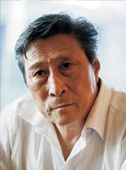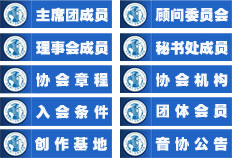
王西麟(1936—),出生于河南开封。1957年,考入上海音乐学院作曲系,1962年毕业于上海音乐学院作曲系,先后师从刘庄、丁善德、瞿维、陈铭志。1963年利用中央广播交响乐团的民族音乐资料创作出第三部作品《云南音诗》,时隔15年后于1978年首演,其中的第四乐章《火把节》已成为世界上演奏最多、最受欢迎的中国交响作品之一。王西麟上世纪80年代以来的作品在音乐表现力和作品中的反思、批判、奋进等人文内涵上都积淀得极为纯熟和深厚,其它杰作包括第三、四、五、六交响曲、交响组曲《太行山印象》、声乐作品《交响壁画》、《铸剑二章》、声乐协奏曲《哀歌》、《小提琴协奏曲》、《四重奏》等等。他被音乐评论家王安国称为"根本上属于一个有强烈的历史使命感、擅长表现哲理性和史诗性的重大题材的交响乐作曲家"。
Wang Xilin (1936 -), born in Henan of Kaifeng. In 1957, admitted to the composition department of the Shanghai Conservatory Of Music, in 1962 graduated from the composition department of the Shanghai Conservatory Of Music, has studied under Liu Zhuang, Ding Shande, Qu Wei, Chen Mingzhi. Create third works "Yunnan tone poem" music data in 1963 by National Central Radio Symphony Orchestra, for the first time in 15 years in 1978 after the premiere, the Fourth Movement "Torch Festival" has become one of the most China symphonic works, the most popular play world. Wang Xilin the last century since the 80's works reflect, in music performance and the works of criticism, such as forward humanistic connotation have accumulated very skillful and profound, including third, four or five, other masterpiece six symphony, Symphonic Suite "Taihang Mountain impression", "symphonic frescoes, vocal music works" "chapter two," cast the sword vocal Concerto "lamentations", "Violin Concerto", "Four Quartets" etc.. He was music critic Wang Anguo called "basically belongs to a significant theme of strong sense of historical mission, good philosophy and epic symphonist".


